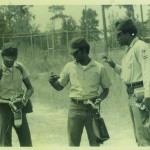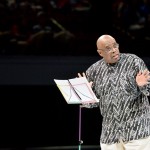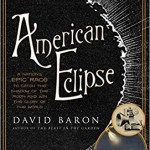On Twitter @DrNacoste I left this thread:
1. Mike Ditka has spoken out against NFL players taking a knee because he says, what oppression? “There has been no oppression in the last 100 years that I know of. Now maybe I’m not watching it as carefully as other people.â€
2. One hundred years is a clear benchmark. Remember, 100 years.
3. If I thought Mr. Ditka read books I would send him a copy of Tim Tyson’s Blood Done Sign My Name; a historical memoir written by a white man about the public killing of a black man in 1970 for which no person who people saw do the killing was ever punished by the law. (Link)
4. Absent book reading, here Mr. Ditka is bit of my family’s personal black history.
5. My dark-skinned “Negro†father was born in 1918-My brown-skinned “Negro†mother was born in 1922… both born into hard legal racial segregation-Racism. Even if we now lived in 2018, Mr. Ditka’s 100 year mark would be woefully wrong and ignorant.
6. Myself born in 1951, I grew up in the Jim-Crow South of legally enforced racial segregation graduating high school in 1969 yet never having been to school with white kids because in 1969 it was still against state law to have racially mixed schooling.
7. Even if we were living in 2051, Mr. Ditka’s 100 year benchmark would be wrong and oblivious to history.
8. Football is just a frivolous game and one that I never played. But I did serve my country in the U.S. Navy (1972-1976) even though there was lingering racial discrimination in the fleet so much so that in 1973 I lived through a race-riot aboard a Navy aircraft carrier-USS Intrepid.
9. No isolated incident-there were 350 documented major racial incidents (including riots) in the Navy between 1970 and 1975 because of lingering and harsh racial discrimination against U.S. Navy sailors who were black. [see Sherwood, John D. (2006) Black Sailor, White Navy: Racial unrest in the fleet during the Vietnam War era. New York: New York University Press.
10. Even if we were living in 2075 Mr. Ditka’s 100 year benchmark would be stunningly without connection to our real American history.
11. We are where we are in American history because nothing in America has been so profound, and important as marginalized and discounted peoples pushing through, and defeating America’s too many intergroup bigotries in be able to live the American promise of “…the pursuit of happiness.â€
12. That is why in 21st century America we arrive at a neo-diverse social environment in which too many Americans struggle with the idea and need to respect people from those many different groups. (see my book, Taking on Diversity: How we can move from anxiety to respect. Amherst, NY: Prometheus Books, 2015; Â https://www.goodreads.com/book/show/22822943-taking-on-diversity)
13. In the midst of one part of that struggle against America’s still too many intergroup bigotries like many others Mr. Ditka has panicked psychologically and to calm himself has claimed that there has been no racial discrimination over the last 100 years.
14. My parents, my sister, my brothers and I have a personal black history that makes that claim look as ridiculous as it is.
15. Here endenth the lesson.




